- Home
- Neil Gaiman
Neverwhere Page 18
Neverwhere Read online
Page 18
“I’ve never heard of such a thing. But I don’t think he would have lied to us. He is an angel.”
Door opened her hand, looked at the statue of the Beast. “My father had one of these,” she said, sadly. She put it deep in one of the pockets of her brown leather jacket.
“Well,” said Richard. “We’re not going to get the key back by lollygagging around here, are we?” They walked through the empty museum corridors.
“So what do you know about this key then?” asked Richard.
“Nothing,” said Door. They had reached the main doors of the museum. “I’ve heard of the Black Friars, but I’ve never actually had anything to do with them.” She pressed her fingers against a seriously locked glass door, which swung open at her touch.
“A bunch of monks . . .” said Richard, thoughtfully. “I bet if we just tell them it’s for an angel, a real one, they’ll give us the sacred key, and—and throw in the magic can-opener and the amazing whistling corkscrew, as a surprise bonus.” He began to laugh. He wondered if the wine was still affecting him.
“You’re in good spirits,” said Door.
He nodded, enthusiastically. “I’m going to go home. Everything is going to be normal again. Boring again. Wonderful again.” Richard looked at the stone steps that lead up the British Museum, and decided that they were made to be danced down by Fred Astaire and Ginger Rogers. And seeing that neither of them happened to be available, he began to dance down the steps, doing a Fred Astaire impersonation, while humming something approximately halfway between “Puttin” on the Ritz” and “Top Hat, White Tie, and Tails.” “Ya-ta-ta-da-da-ta-ta-ya,” he sang, soft-shoeing down the steps and up again.
Door stood at the top of the steps, staring at him in horror. Then she began to giggle, helplessly. He looked up at her and doffed his imaginary white silk top hat to her, mimed tossing it high in the air, catching it, and putting it back on his head.
“Twit,” said Door, and smiled at him. In response, Richard grabbed her hand and continued dancing up and down the steps. Door hesitated for a moment, then she, too, began to dance. She danced much better than Richard did. At the bottom of the steps they tumbled, breathless and exhausted and giggling, into each other’s arms.
Richard felt his world spin.
He felt her heart beating against his chest. The moment began to transmute, and he wondered if there was something he should do. He wondered if he should kiss her. He wondered if he wanted to kiss her, and he realized that he truly did not know. He looked into her amazing eyes. Door put her head on one side, and pulled free. She pulled up the collar on her brown leather jacket, pulled it around her: armor and protection.
“Let’s go and find our bodyguard,” said Door. And they walked away together, down the sidewalk, toward British Museum Station, stumbling only a little from time to time.
“What,” asked Mr. Croup, “do you want?”
“What,” asked the marquis de Carabas, a little more rhetorically, “does anyone want?”
“Dead things,” suggested Mr. Vandemar. “Extra teeth.”
“I thought perhaps we could make a deal,” said the marquis.
Mr. Croup began to laugh. It sounded like a piece of blackboard being dragged over the nails of a wall of severed fingers. “Oh, Messire Marquis. I think I can confidently state, with no risk of contradiction from any parties here present, that you have taken leave of whatever senses you are reputed to have had. You are,” he confided, “if you will permit the vulgarism, completely off your head.”
“Say the word,” said Mr. Vandemar, who was now standing behind the marquis’s chair, “and it’ll be off his neck before you can say Jack Ketch.”
The marquis breathed heavily on his fingernails and polished them on the lapel of his coat. “I have always felt,” he said, “that violence was the last refuge of the incompetent, and empty threats the final sanctuary of the terminally inept.”
Mr. Croup glared. “What are you doing here?” he hissed.
The marquis de Carabas stretched, like a big cat: a lynx, perhaps, or a huge black panther; and at the end of the stretch he was standing up, with his hands thrust deep in the pockets of his magnificent coat. “You are,” he said, idly and conversationally, “I understand, Mister Croup, a collector of T’ang dynasty figurines.”
“How did you know that?”
“People tell me things. I’m approachable.” The marquis’s smile was pure, untroubled, guileless: the smile of a man selling you a used Bible.
“Even if I were . . .” began Mr. Croup.
“If you were,” said the marquis de Carabas, “you might be interested in this.” He took one hand out of his pocket and displayed it to Mr. Croup. Until earlier that evening it had sat in a glass case in the vaults of one of London’s leading merchant banks. It was listed in certain catalogues as The Spirit of Autumn (Grave Figure). It was roughly eight inches high: a piece of glazed pottery that had been shaped and painted and fired while Europe was in the Dark Ages, six hundred years before Columbus’s first voyage.
Mr. Croup hissed, involuntarily, and reached for it. The marquis pulled it out of reach, cradled it to his chest. “No no,” said the marquis. “It’s not as simple as that.”
“No?” asked Mr. Croup. “But what’s to stop us taking it, and leaving pieces of you all over the Underside? We’ve never dismembered a marquis before.”
“Have,” said Mr. Vandemar. “In York. In the fourteenth century. In the rain.”
“He wasn’t a marquis,” said Mr. Croup. “He was the earl of Exeter.”
“And marquis of Westmorland.” Mr. Vandemar looked rather pleased with himself.
Mr. Croup sniffed. “What’s to stop us hacking you into as many pieces as we hacked the marquis of Westmorland?” he asked.
De Carabas took his other hand out of his pocket. It held a small hammer. He tossed the hammer in the air and caught it by the handle, ending with the hammer poised over the china figurine. “Oh, please,” he said. “No more silly threats. I think I’d feel better if you were both standing back over there.”
Mr. Vandemar shot a look at Mr. Croup, who nodded, almost imperceptibly. There was a tremble in the air, and Mr. Vandemar was standing beside Mr. Croup, who smiled like a skull. “I have indeed been known to purchase the occasional T’ang piece,” he admitted. “Is that for sale?”
“We don’t go in so much for buying and selling here in the Underside, Mister Croup. Barter. Exchange. That’s what we look for. But yes, indeed, this desirable little piece is certainly up for grabs.”
Mr. Croup pursed his lips. He folded his arms. He unfolded them. He ran one hand through his greasy hair. Then, “Name your price,” said Mr. Croup. The marquis let himself breathe a deep, relieved, and almost audible sigh. It was possible that he was going to be able to pull this whole grandiose ruse off, after all. “First, three answers to three questions,” he said.
Croup nodded. “Each way. We get three answers too.”
“Fair enough,” said the marquis. “Secondly, I get safe conduct out of here. And you agree to give me at least an hour’s head start.”
Croup nodded violently. “Agreed. Ask your first question.” His gaze was fixed on the statue.
“First question. Who are you working for?”
“Oh, that’s an easy one,” said Mr. Croup. “That’s a simple answer. We are working for our employer, who wishes to remain nameless.”
“Hmph. Why did you kill Door’s family?”
“Orders from our employer,” said Mr. Croup, his smile becoming more foxy by the moment.
“Why didn’t you kill Door, when you had a chance?”
Before Mr. Croup could answer, Mr. Vandemar said, “Got to keep her alive. She’s the only one that can open the door.”
Mr. Croup glared up at his associate. “That’s it,” he said. “Tell him everything, why don’t you?”
“I wanted a turn,” muttered Mr. Vandemar.
“Right,” said Mr. Croup. “So y
ou’ve got three answers, for all the good that will do you. My first question: why are you protecting her?”
“Her father saved my life,” said the marquis, honestly. “I never paid off my debt to him. I prefer debts to be in my favor.”
“I’ve got a question,” said Mr. Vandemar.
“As have I, Mr. Vandemar. The Upworlder, Richard Mayhew. Why is he traveling with her? Why does she permit it?”
“Sentimentality on her part,” said the marquis de Carabas. He wondered, as he said it, if that was the whole truth. He had begun to wonder whether there might, perhaps, be more to the upworlder than met the eye.
“Now me,” said Mr. Vandemar. “What number am I thinking of?”
“I beg your pardon?”
“What number am I thinking of?” repeated Mr. Vandemar. “It’s between one and a lot,” he added, helpfully.
“Seven,” said the marquis. Mr. Vandemar nodded, impressed. Mr. Croup began, “Where is the—” but the marquis shook his head. “Uh-uh,” he said. “Now we’re getting greedy.”
There was a moment of utter silence, in that dank cellar. Then once more water dripped, and maggots rustled; and the marquis said, “An hour’s head start, remember.”
“Of course,” said Mr. Croup.
The marquis de Carabas tossed the figurine to Mr. Croup, who caught it eagerly, like an addict catching a plastic baggie filled with white powder of dubious legality. And then, without a backward glance, the marquis left the cellar.
Mr. Croup examined the figurine minutely, turning it over and over in his hands, a Dickensian curator of the Museum of the Damned contemplating a prize exhibit. His tongue flicked out, from time to time, like a snake’s. A perceptible flush appeared on his pallid cheeks. “Oh, fine, fine,” he whispered. “T’ang dynasty indeed. Twelve hundred years old, the finest pottery figurines ever made on this earth. This was created by Kai Lung, finest of potters: there is not a twin to it in existence. Examine the color of the glaze; the sense of proportion; the life . . .” He was smiling now, like a baby; the innocent smile looked lost and confused on the shady terrain of Mr. Croup’s face. “It adds a little wonder and beauty to the world.”
And then he grinned, too widely, and lowered his face to the figurine, and crushed its head in his teeth, chomping and chewing wildly, swallowing in lumps. His teeth ground the china to a fine powder, which dusted the lower part of his face.
He gloried in its destruction, throwing himself into it with the strange madness and uncontrolled blood lust of a fox in a henhouse. And then, when the statue was nothing but dust, he turned to Mr. Vandemar. He seemed strangely mellow, almost languid. “How long did we say we’d give him?”
“An hour.”
“Mmm. And how long has it been?”
“Six minutes.”
Mr. Croup lowered his head. He ran a finger across his chin, licked the powdered clay from his fingertip. “You follow him, Mister Vandemar,” said Mr. Croup. “I need a little more time in which to savor the occasion.”
Hunter could hear them walking down the steps. She was standing in the shadows, with her arms folded, in the same position she had been in when they left her. Richard was humming loudly. Door was giggling helplessly; then she would stop, and tell Richard to be quiet. Then she would start giggling again. They walked past Hunter without noticing her.
She stepped out of the shadows, and said, “You have been gone for eight hours.” It was a statement of fact, without reproach or curiosity.
Door blinked at her. “It didn’t seem that long.” Hunter said nothing.
Richard grinned blearily at her. “Don’t you want to know what happened? Well, we got ambushed by Mister Croup and Mister Vandemar. Unfortunately we didn’t have a bodyguard around. Still, I gave them a good run for their money.”
Hunter raised a perfect eyebrow. “I am in awe of your pugilistic talents,” she said coolly.
Door giggled. “He’s kidding. Actually—they killed us.”
“As an expert in the termination of bodily functions,” Hunter said, “I must beg to differ. You are neither of you dead. At a guess, you are both very drunk.”
Door stuck her tongue out at her bodyguard. “Nonsense. Touched hardly a drop. That much.” She held out two fingers to show how tiny an amount “that much” was.
“Just went to a party,” said Richard, “and saw Jessica and saw a real angel and got a little black pig and came back here.”
“Just a little drink,” continued Door, intently. “Old, old drink. Tiiiiny little drink. Very small. Almost not there.” She began to hiccup. Then she giggled again. A hiccup interrupted her, and she sat down suddenly on the platform. “I think maybe we are a bit smashed,” she said, soberly. Then she closed her eyes, and began, solemnly, to snore.
The marquis de Carabas was running through the underways as if all the hounds of Hell had his scent and were on his trail. He was splashing through six gray inches of the Tyburn, the hangman’s river, kept safe in the darkness in a brick sewer beneath Park Lane on its way south to Buckingham Palace. He had been running for seventeen minutes.
Thirty feet below Marble Arch, he paused. The sewer divided into two branches. The marquis de Carabas ran down the left-hand branch.
Several minutes later, Mr. Vandemar walked through the sewer. And when he reached the junction he, too, paused for a few moments, sniffing the air. And then he, too, walked down the left-hand branch.
Hunter dropped Richard Mayhew’s unconscious body into a pile of straw, with a grunt. He rolled in the straw, said something that sounded like “Forthril bjugly mobble wug,” and went back to sleep. She put Door down in the straw next to him, more gently. Then she stood beside Door, in the dark stables under the ground, on guard still.
The marquis de Carabas was exhausted. He leaned against the tunnel wall and stared at the steps that went up ahead of him. Then he pulled out the golden pocket-watch and looked at the time. Thirty-five minutes had passed since he had fled the hospital cellar.
“Is it an hour yet?” asked Mr. Vandemar. He was sitting on the steps ahead of the marquis, picking his nails with a knife.
“Not even close,” gasped the marquis.
“Felt like an hour,” said Mr. Vandemar, helpfully.
There was a shiver in the world, and Mr. Croup stood behind the marquis de Carabas. He still had powder on his chin. De Carabas stared at Mr. Croup. He turned back to look at Mr. Vandemar. And then, spontaneously, the marquis de Carabas began to laugh. Mr. Croup smiled. “You find us funny, Messire Marquis, do you not? A source of amusement. Is that not so? With our pretty clothes, and our convoluted circumlocutions—”
Mr. Vandemar murmured, “I haven’t got a circumlo . . . ”
“—and our little sillinesses of manner and behavior. And perhaps we are funny.”
Mr. Croup raised one finger then, and waggled it at de Carabas. “But you must never imagine,” he continued, “that just because something is funny, Messire Marquis, it is not also dangerous.”
And Mr. Vandemar threw his knife at the marquis, hard and accurately. It hit him, hilt first, on the temple. His eyes rolled up in his head, and his knees buckled. “Circumlocution,” said Mr. Croup to Mr. Vandemar. “It’s a way of speaking around something. A digression. Verbosity.”
Mr. Vandemar picked up the marquis de Carabas by his waistband and dragged him up the stairs, his head bump-bump-bumping on each step as they went, and Mr. Vandemar nodded. “I wondered,” he said.
Watching their dreams, now, as they sleep.
Hunter sleeps standing up.
In her dream, Hunter is in the undercity beneath Bangkok. It is partly a maze, and partly a forest, for the wilderness of Thailand has retreated deep beneath the ground, under the airport and the hotels and the streets. The world smells of spice and dried mango, and it also smells, not unpleasantly, of sex. It is humid, and she is sweating. It is dark, broken by phosphorescent patches on the wall, greenish grey fungi that give light enough to fool the eye, ligh
t enough to walk by.
In her dream Hunter moves silent as a ghost through the wet tunnels, pushing her way through vegetation. She holds a weighted throwing stick in her right hand; a leather shield covers her left forearm.
She smells it, in her dream, acrid and animal, and she pauses beside a wall of ruined masonry, and she waits, part of the shadows, one with the darkness. Hunting, like life, Hunter believes, consists chiefly of waiting. In Hunter’s dream, however, she does not wait. Upon her arrival, it comes through the underbrush, a fury of brown and of white, undulating gently, like a wet-furred snake, its red eyes bright and peering through the darkness, its teeth like needles, a carnivore and a killer. The creature is extinct in the world above. It weighs almost three hundred pounds, and is a little over fifteen feet long, from the tip of its nose to the tip of its tail.
As it passes her, she hisses like a snake, and, momentarily, old instincts kicking in, it freezes. And then it leaps at her, nothing but hate and sharp teeth. She remembers, then, in her dream, that this had happened before, and that when it had happened, that time in the past, she had pushed the leather arm-shield into its mouth and crushed its skull with the leaden throwing stick taking care not to damage the pelt. She had given the Great Weasel’s pelt to a girl who had caught her eye, and the girl had been appropriately grateful.
But now, in her dream, that is not happening. Instead, the weasel is reaching out a forepaw toward her, and she is dropping her throwing stick and taking its paw. And then and there, in the undercity beneath Bangkok, they are dancing together, in one intricate unending dance: and Hunter is watching them from outside herself, and she is admiring the elaborate movements they make as they move, tail and legs and arms and fingers and eyes and hair all tumbling and twisting powerfully and strangely into the underneath and out across forever.
There is a tiny noise in the waking world, a dreaming whimper from the child Door, and Hunter moves from sleeping to waking fluidly and instantly; she is alert once more, and on guard. She forgets her dream entirely upon waking.

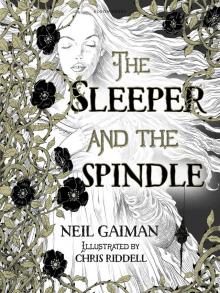 The Sleeper and the Spindle
The Sleeper and the Spindle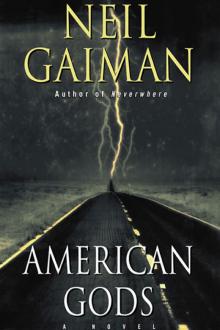 American Gods
American Gods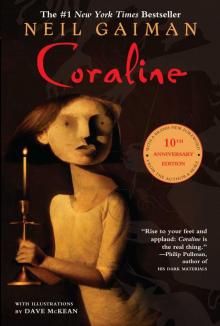 Coraline
Coraline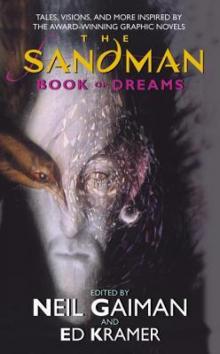 The Sandman: Book of Dreams
The Sandman: Book of Dreams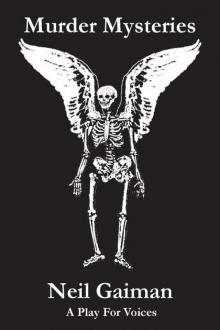 Murder Mysteries
Murder Mysteries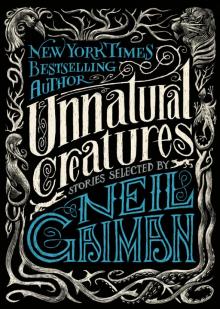 Unnatural Creatures
Unnatural Creatures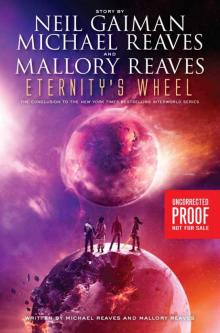 Eternity's Wheel
Eternity's Wheel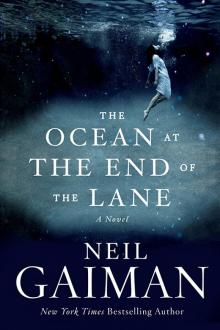 The Ocean at the End of the Lane
The Ocean at the End of the Lane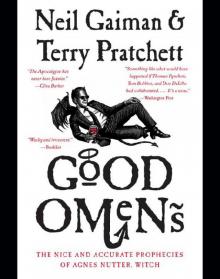 Good Omens
Good Omens Stardust
Stardust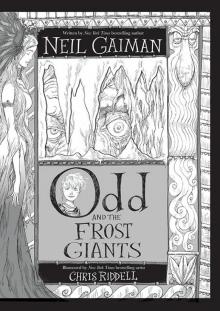 Odd and the Frost Giants
Odd and the Frost Giants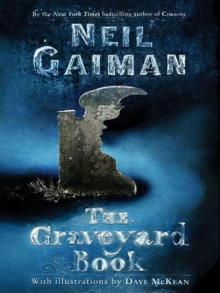 The Graveyard Book
The Graveyard Book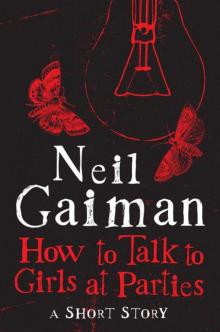 How to Talk to Girls at Parties
How to Talk to Girls at Parties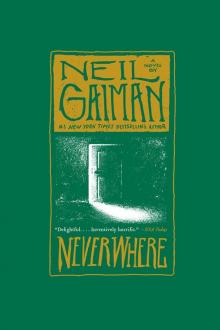 Neverwhere
Neverwhere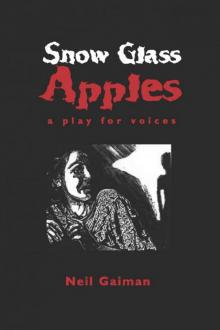 Snow, Glass, Apples
Snow, Glass, Apples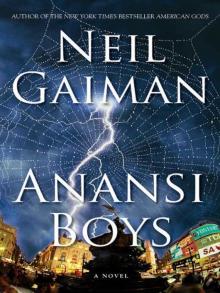 Anansi Boys
Anansi Boys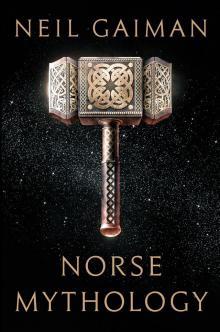 Norse Mythology
Norse Mythology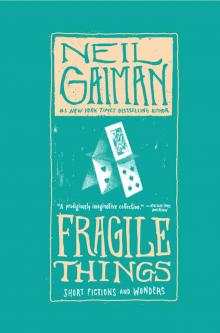 Fragile Things: Short Fictions and Wonders
Fragile Things: Short Fictions and Wonders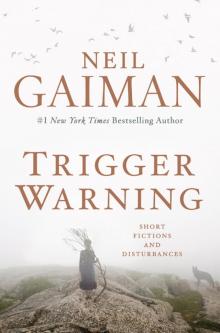 Trigger Warning: Short Fictions and Disturbances
Trigger Warning: Short Fictions and Disturbances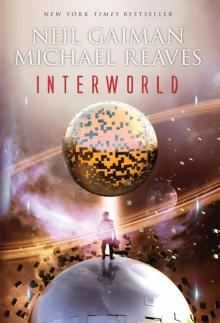 InterWorld
InterWorld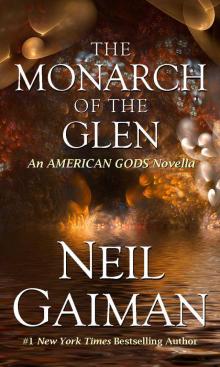 The Monarch of the Glen
The Monarch of the Glen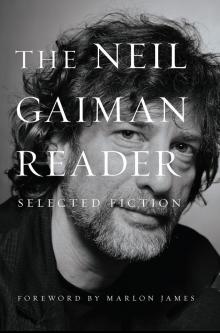 The Neil Gaiman Reader
The Neil Gaiman Reader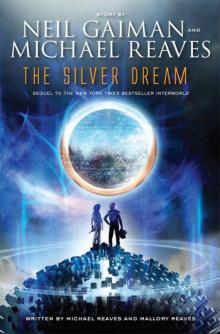 The Silver Dream
The Silver Dream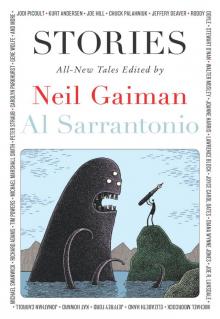 Stories
Stories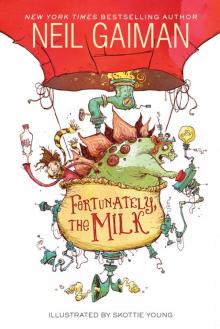 Fortunately, the Milk
Fortunately, the Milk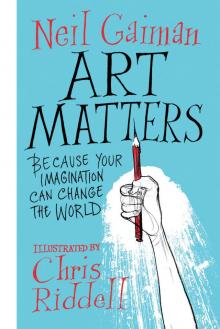 Art Matters
Art Matters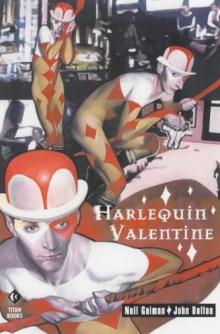 Harlequin Valentine
Harlequin Valentine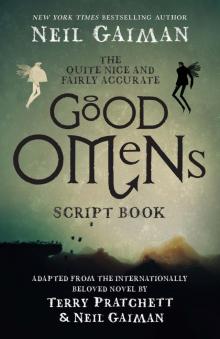 The Quite Nice and Fairly Accurate Good Omens Script Book
The Quite Nice and Fairly Accurate Good Omens Script Book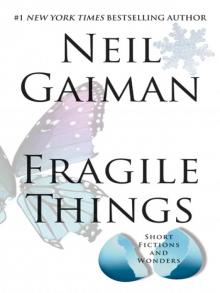 Fragile Things
Fragile Things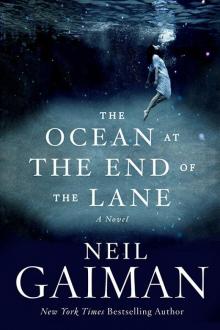 The Ocean at the End of the Lane: A Novel
The Ocean at the End of the Lane: A Novel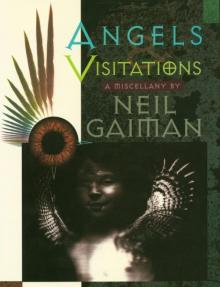 Angels and Visitations
Angels and Visitations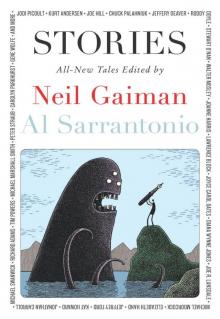 Stories: All-New Tales ngss-1
Stories: All-New Tales ngss-1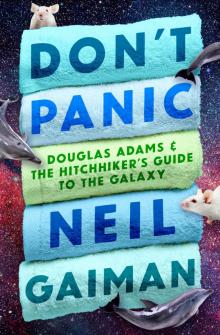 Don't Panic
Don't Panic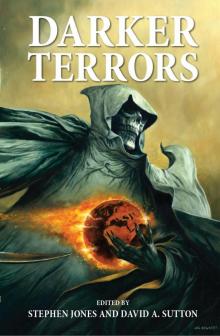 Darker Terrors
Darker Terrors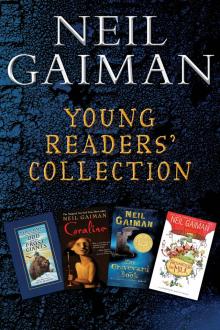 Neil Gaiman Young Readers' Collection
Neil Gaiman Young Readers' Collection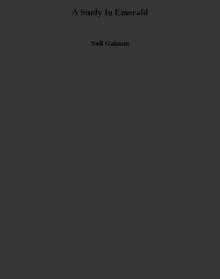 A Study In Emerald
A Study In Emerald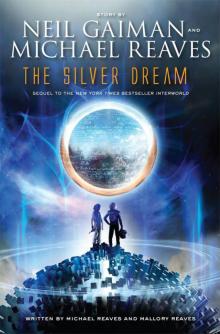 The Silver Dream: An InterWorld Novel
The Silver Dream: An InterWorld Novel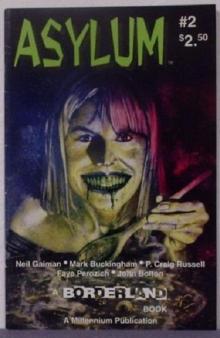 Feeders and Eaters
Feeders and Eaters Psychos
Psychos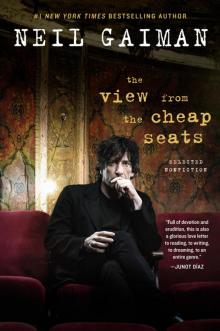 The View from the Cheap Seats
The View from the Cheap Seats Trigger Warning
Trigger Warning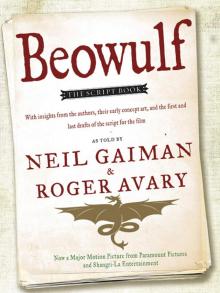 Beowulf
Beowulf Nessun Dove
Nessun Dove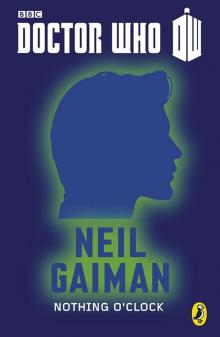 Doctor Who: Nothing O'Clock: Eleventh Doctor: 50th Anniversary
Doctor Who: Nothing O'Clock: Eleventh Doctor: 50th Anniversary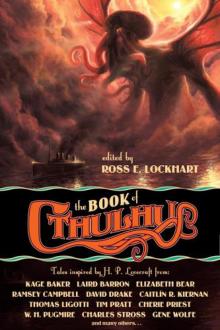 The Book of Cthulhu
The Book of Cthulhu